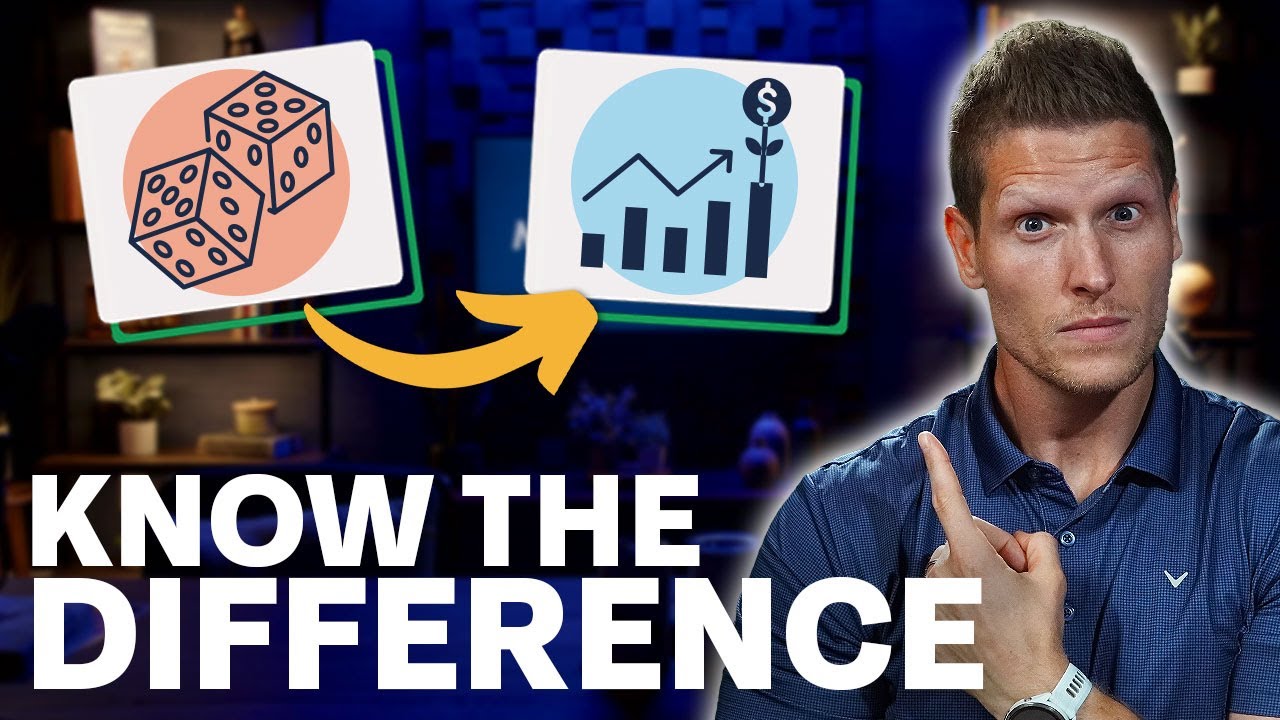
Dave Ramsey has helped millions of Americans with debt, which is no easy task. Over 5 million have participated in Financial Peace University, and over 4 million high school students have participated in Dave’s personal finance program for high schoolers. Dave’s understanding of the psychological impacts of debt, and how it affects our behavior, has enabled him to help so many people.
Like debt, investing also has many behavioral and psychological aspects. Dave does a great job of guiding investors through the psychological minefield of investing; he believes in keeping a long-term perspective, and not getting caught up in day-to-day swings in the stock market. Dave doesn’t think it’s wise to invest in single stocks, either. Much of his investment strategy is sound, but we think there is some room for improvement.
1. Dave isn’t a huge fan of index investing.
Dave Ramsey does believe it’s important to consider a fund’s expenses when searching for a suitable investment, but encourages investing in actively managed funds. Chris Hogan, a Ramsey Personality, wrote that “Index funds won’t beat the market. Listen, average is okay. But do you want to settle for “okay”? I don’t think so!” It is true that index funds will never beat the market because they are the market. If your sole investing objective is to beat the market, index funds will not achieve that goal. We disagree that index funds are average investments, though.
Index funds are typically more tax-efficient than active funds because they don’t tend to change very much. The goal of an index fund is to mirror a broad market index, such as the S&P 500, and it doesn’t require much trading or turnover to do that. Active investments, on the other hand, aim to beat market indexes. Attempting to beat the market often involves more trading and investment turnover, which in turn could generate more taxes.
Index funds are also cheaper than actively managed funds, which makes sense. Active managers need to spend more time and energy managing their investments because they are trying to beat the market indexes. Index fund managers need to only mirror their index, which keeps costs down. The Investment Company Institute studies trends in mutual fund and ETF expenses, and their most recent annual report, released in March, found that index funds still have much lower expense ratios than their actively managed counterparts. The median expense ratio for domestic equity index funds (such as S&P 500 indexes) is 0.42%, and domestic equity active funds sit at 1.12%. World equity index funds median expense ratio is 0.49%, compared to 1.25% for active funds in the same category, and index bond and hybrid funds come in at just 0.20%, compared to 0.88% for actively managed bond and hybrid funds.
Okay, so actively managed funds might not be as tax efficient and might be a little more expensive to invest in, but their higher returns are worth the trouble, right? Data from SPIVA finds, time and time again, that passive investments outperform active investments the majority of the time. In their most recent report, market indexes outperformed over 80% of active funds over the past 15 years in every single category of domestic funds that SPIVA tracks, from small-cap to large-cap to real estate. In some categories, over 90% of actively managed funds were outperformed by their respective benchmarks.
To beat the market, one would have to overcome the tax efficiency and low cost of index funds, in addition to picking an active fund that can consistently outperform its respective benchmark. Index funds might not look so average after all.
2. Dave doesn’t balance risk and return.
Investors may be willing to accept more risk for a greater reward, and they may accept a smaller reward in exchange for reduced risk. Dave’s investment philosophy does not do a great job balancing risk and reward. We know that Dave divides his mutual fund investments equally between four types of funds: growth, growth and income, aggressive growth, and international funds. Growth and income is synonymous with domestic large-cap, growth with domestic mid-cap, aggressive growth with domestic small-cap, and international is, well, international.
On our most recent show, where we took a closer look at Dave Ramsey’s investment philosophy, we compared a theoretical portfolio of four funds, one in each of Dave’s suggested categories, to the S&P 500. In good times, performance was similar; the best 3-month, 1-year, and 3-year returns were very close, but the worst periods were much worse for the so-called “Ramsey Portfolio” than for the S&P 500. A closer look at the portfolio reveals that it is indeed riskier than the S&P 500, but there are no excess returns to justify any excess risk; in fact, the S&P 500 outperformed the Ramsey Portfolio over the last 1-year, 3-year, 5-year, and 10-year time period.
3. Dave has a one-size-fits-all approach to investing.
As you get older and closer to retirement, your portfolio will likely change to reflect your reduced capacity for risk. At younger ages, in the accumulation phase, you can afford to take on a greater amount of risk because you have a greater amount of time to make up any potential losses. In retirement, you don’t have that luxury. The money you take out of your portfolio to live on must be there when you need it, which is why older investors typically have more cash on hand and may have more invested in risk-off assets such as bonds.
A riskier allocation, like in the Ramsey Portfolio, could be detrimental to an older investor. There is not a one-size-fits-all portfolio out there that is right for everyone because we all have different goals, time horizons, risk tolerance, and so many more differences. For investors just starting out, index funds and target-date retirement funds might be worth considering, and as your finances mature, you might feel the need to reach out to a fee-only financial advisor for a personalized portfolio.
In our latest show, “Deep Dive on Dave Ramsey’s Investment Advice! (Financial Advisors React),” we took a closer look at Dave Ramsey’s investment philosophy and found a few areas where they might be some room for improvement. It’s not all about Dave, either; learn more about our tenets of investing and our philosophy, all on our most recent episode. Watch it now on YouTube below.













